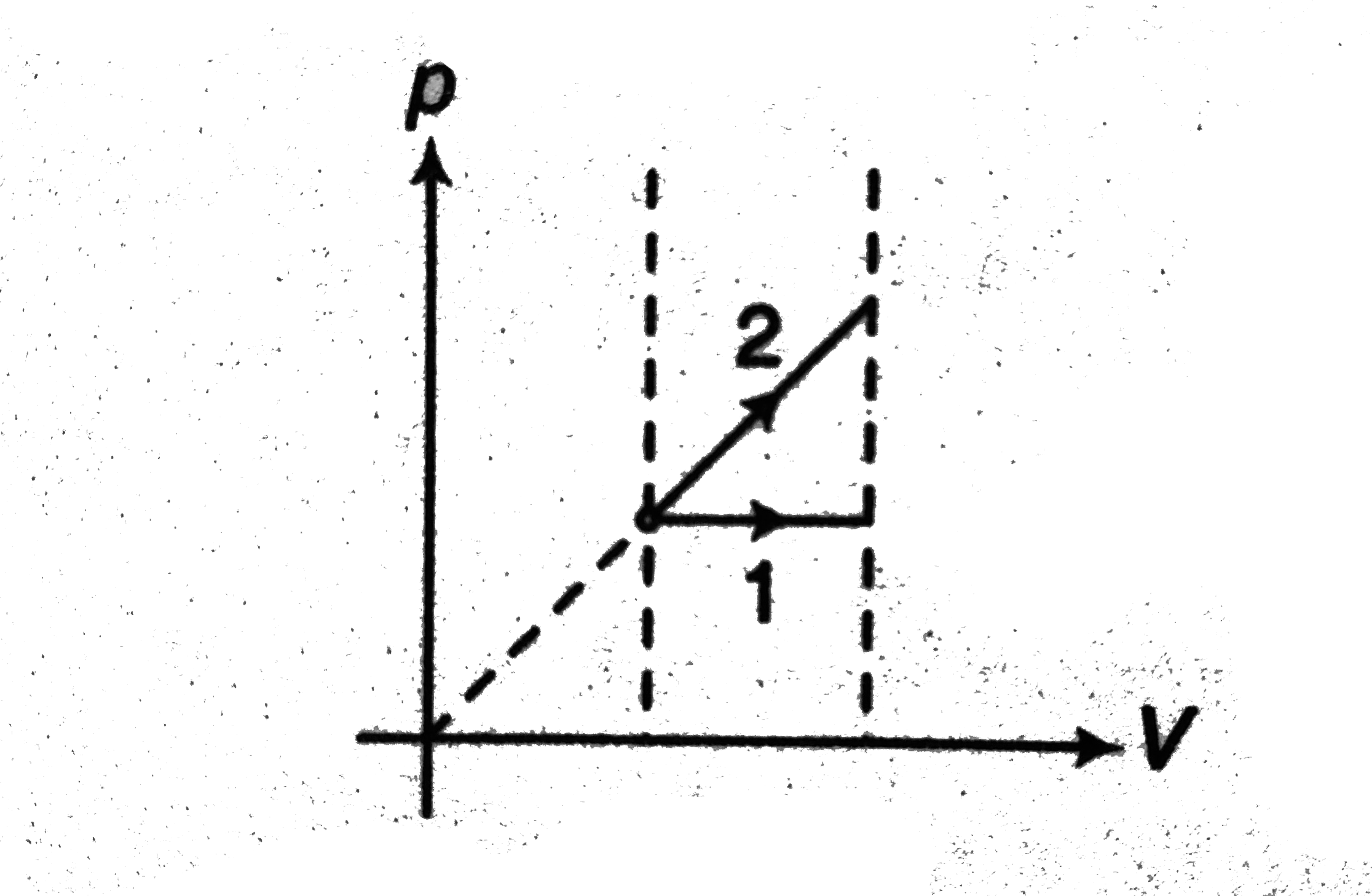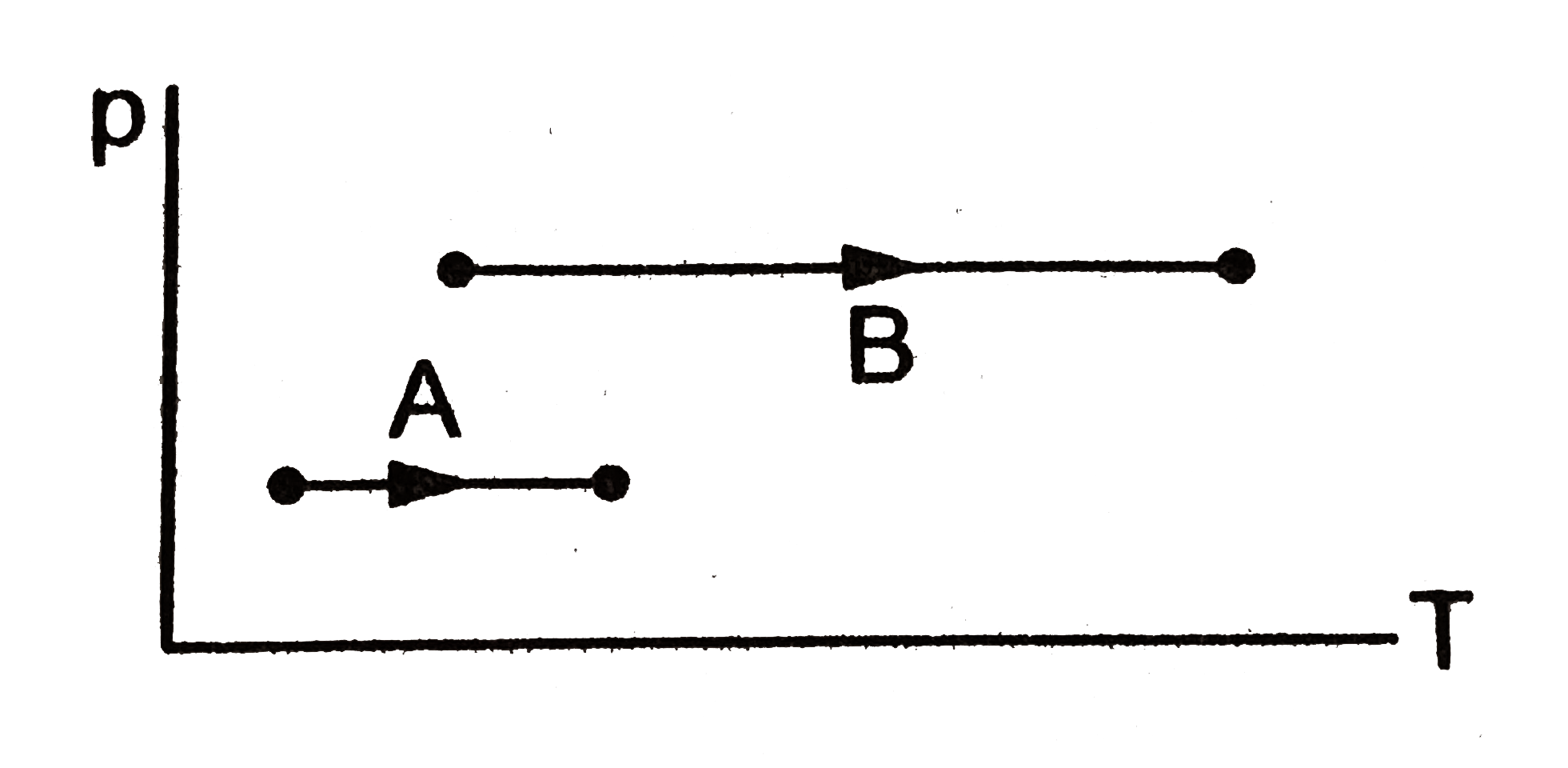A gas can expand through two processes : (i) isobaric, (ii) pV =constant. Assuming that the initial volume is same in both processes and the final volume which is two times the initial volume is also same in both processes, which of the following is true?
(a) Work done by gas in process (i) is greater than the work done by the gas in process (ii)
(b) Work done by gas in process (i) is smaller than the work done by the gas in process (ii)
(c) Final pressure is greater in process (i)
(d) Final temperature is greater in process (i)
The correct Answer is:B
In second process, p∝V i.e. p−V graph is straight line passing through origin.

Area under graph-2 is more.
∴ W2>W1
Further,T prop pV<br>(pV)_2gt(pV)_1<br>:.T_2gtT_1
Topper's Solved these Questions
- LAWS OF THERMODYNAMICSBOOK - DC PANDEYCHAPTER - LAWS OF THERMODYNAMICSEXERCISE - Level 2 More Than One Correct
6 Videos
- LAWS OF THERMODYNAMICSBOOK - DC PANDEYCHAPTER - LAWS OF THERMODYNAMICSEXERCISE - Level 2 Passage I
2 Videos
- LAWS OF THERMODYNAMICSBOOK - DC PANDEYCHAPTER - LAWS OF THERMODYNAMICSEXERCISE - Level 1 Subjective
24 Videos
- LAWS OF MOTIONBOOK - DC PANDEYCHAPTER - LAWS OF MOTIONEXERCISE - Medical entrances gallery
39 Videos
- MAGNETIC EFFECT OF CURRENT AND MAGNETISMBOOK - DC PANDEYCHAPTER - MAGNETIC EFFECT OF CURRENT AND MAGNETISMEXERCISE - Integer type Questions
10 Videos
Similar Questions
Knowledge Check
An ideal gas has initial volume V and pressure p. In doubling its volume the minimum work done will be in the process (of the given processes)
A(a) isobaric processB(b) isothermal processC(c) adiabatic processD(d) same in all given processesAn ideal diatomic gas is expanded so that the amount of heat transferred to the gas is equal to the decrease in its internal energy.
If in the above process, the initial temperature of the gas be T0 and the final volume by 32 times the initial volume, the work done ( in joules ) by the gas during the process will beART0B5RT02C2RT0DRT022 moles of a monoatomic gas are expanded to double its initial volume, through a process (P)/(V)= constant. If its initial temperature is 300K, then which of the following is not true.
A△T=900KB△Q=3200RC△Q=3600RDW=900R
An ideal gas is compressed to half its initial volume by means of several peocesses. Which of the process results in the maximum work done on the gas ?
View SolutionAn ideal gas is compressed to haf f its initial volume by means of several processes. Which of the process results in the maximum work done on the gas ?
View Solutionconsider two processes on a system on a system as shown in
the volumes in the initial states are the same in the two processes and the volume in the final states are also the same.Let ΔW1andΔW2 be the work done by the sustem in the processes A and B respectively.

View SolutionThe pressure p and volume V of an ideal gas both increase in a process.
View SolutionA gas is compressed isothermally to half its initial volume. The same gas is compressed separately through an adiabatic process untill its volume is again reduced to half. Then
View Solution
